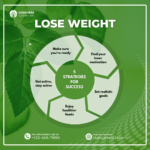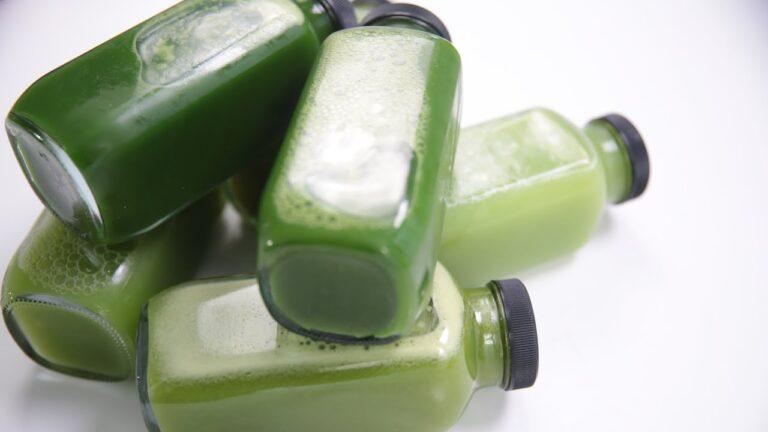 What is Ramadan? What does it mean, and what occurs during the month? For many of us beyond the Muslim faith it can be a little a mystery. Rather than taking a look at this academically, I believed it may be fascinating to discover what Ramadan indicated to one Muslim household in Derby, how they comprehended it, why they participate, what it includes, and what they get from it. This is one household’s viewpoint, but ideally insightful. Fatimah, Razak, Saahil, and Luqman, are a Muslim British-Pakistani family living in Normanton and they live their lives, as best as possible, in line with the Islamic faith.
What is Ramadan? What does it mean, and what occurs during the month? For many of us beyond the Muslim faith it can be a little a mystery. Rather than taking a look at this academically, I believed it may be fascinating to discover what Ramadan indicated to one Muslim household in Derby, how they comprehended it, why they participate, what it includes, and what they get from it. This is one household’s viewpoint, but ideally insightful. Fatimah, Razak, Saahil, and Luqman, are a Muslim British-Pakistani family living in Normanton and they live their lives, as best as possible, in line with the Islamic faith.
I met them for a few hours and started by attempting to understand how Ramadan fitted into the structure of Islam, and how it happened.
The first thing that they mentioned to me was that, culturally, fasting pre-dated Islam, and appears in Christianity, Judaism and most of the world’s main religious beliefs. Within Islam it is one of the 5 Pillars.
The other 4 being:
Ramadan is the name of among the months in the Islamic calendar. This is based upon a lunar cycle so changes each year relative to the basic set of dates by about 10 days. It is a time when good deeds are rewarded by 70 times compared to other times in the year.
“During Ramadan, for every good action, you’ll be rewarded, spiritually, 70 times by Allah … our statement Is that we believe in the hidden, and the benefits remain in the afterlife. The angels jot down all of the good and the bad actions, so on the Day of Judgement they’ll be weighed up … so every good deed I do, will assist me to get to heaven”
Are there individuals who are less devout during the year, and make and attempt up for it during Ramadan?
“Yes … The scholars say …’When you’ve got these problems around the world and you blame it on the non-Muslims you don’t consider the “1 month Muslims”. Being a Muslim should be for the entire life. These issues are produced within yourself, and while the issues may not follow them directly, they will impact somebody, as we see all Muslims as one system, as a whole body”
I was fascinated amazed the notion idea a reward and what it meant …
“Even we don’t know what understand reward is benefit each fast that quickly do but, however’s a great reward that benefit get on the Day of Judgement. It’s Allah’s method of evaluating us as human beings when we are prepared not to consume or consume for the satisfaction of our Creator”
Fasting throughout Ramadan was revealed to Mohammed in the Quran. It prohibits drinking and eating in between sunrise and sunset along with abstaining from sex, swearing, back-biting. There are particular exemptions– for instance pregnant ladies, kids, people with bad health.
When does it start?
The words of Mohammed state “Sight the moon and Start your quick”. This associates with the sighting of the crescent moon. There appears to be numerous ways in which this can be translated, and likewise, it depends on where in the world this sighting is referenced. I thought that the crescent was a matter of mathematical certainty nevertheless taken literally from the Quran it needs to be ‘sighted’. In cloudy UK this can be an issue, which is where the ambiguity creeps in. Individuals in Morocco and South Africa who are on a comparable line of longitude can aid with the sighting.
What is the day-to-day regime throughout Ramadan?
At this time of year the fasting starts around 2.30 am which is the time of the very first peeks of light from the rising sun. No food or fluids are permitted through the mouth until the confirmed sundown around 9.15 pm (there are comprehensive daily tables based on various aspect angles that validate the actual times. These alter each day due to the change of sunrise/sunset times)
In June, in the UK, Ramadan is at its most difficult. After almost 19 hours of fasting, when the clock ticks past the appointed time, there is the temptation to over-indulge. In the Razak household it’s measured. They start with dates, prepare the food, have water and some fruits and then to prayers. In some cases the guys will go to the mosque for night prayers, and take food which earns extra benefits.
“It’s cleansing you from the inside, spiritually. It’s also about self-control, so for example for parents, you do not yell at your kids. When you get starving, you lose your cool and can start screaming– it’s about remaining in a state of calm and have control of yourself– it’s not easy. It’s about checking yourself”
They’ll try and get a couple of hours sleep and wake around 2am for the last prayers of the night and to eat something before the quick starts again.
“It’s truly great at the time of the early morning, we all get up, we’re all exhausted. We’ll all have something to eat which Razak makes. It’s a bit of function reversal in our home sometimes as Razak frequently deals with the night-shift. We’re all together … and it’s good that we’re all devoted and we all got up”
They have 2 sons Saahil and Luqman. Luqman is still too young to take part in the quick, and he will try to take part in mini-fasts, although he finds it tough. Saahil, fasted in 2015 for the first time, which was his choice. It is very important for him that he does it and to be part of the family tradition and to show his commitment to his faith. He did it out of free choice– he decided when the time was right.
The first 20 fasts are the same, and the last 10 see an increase in strength of praying, in specific, and checking out the mosque. Some people enter into more seclusion without any interactions to get on a spiritual high.
Just how much of this is being done out of worry?
“You should be fearful of Allah’s reaction to you, if you’re disobeying him, however then you shouldn’t be doing it out of fear as that’s not the function of it”
“I do it for Allah’s satisfaction, I want Allah to be pleased with me, to bless me, and achieve success in this world and the hereafter”
“Some Muslims find it really challenging to quick and in some cases I believe it’s might be because they do not have that connection with God, do not practice, they perhaps have not got the true belief, which’s why they find it so hard? It’s not to criticise …”
On the 29th day individuals head out moon finding, and after that the next day is Eid which is the day of event.
Fatimah gets up early in the morning and begins preparing the food. Razak and the kids will go to the mosque in their newly pressed white attire, then to Razak’s mom’s home for some food. Then they come back home, and they are signed up with by Fatimah’s brothers– it is a time for family. It is also a time for them to be using new clothes, and the children are always anticipating presents– it’s like Christmas! Fatimah’s view is:
“The essence is to celebrate, not to be extravagantLavish The month is to reflect and learn from it,,,, not to neglect it.”
10 weeks after Eid, is Hajj, and the following day is Big Eid when animals are sacrificed marking the time when Abraham was informed by Allah to sacrifice his own kid.
Talking with Fatimah and Razak about this whole subject made me assess my perception of it. Ramadan has numerous problems, technicalities and rules, however equally, many practical choices that cater for contemporary living, and geographical location that help with individuals engaging with the procedure. Although this appears strange to Islam, fasting is an idea that is common through many faiths and cultures and is well understood as a method of physical healing, and spiritual enhancement. The residues of this in the Christian tradition is Lent which is a “lighter” version as it tends just to be abstinence of one aspect of life. But they all appear to be there as a kind of personal difficulty linked into a spiritual dimension.
Undoubtedly it is a significant dedication for an entire month, and I could see how it would be a valuable way to help someone to “take stock” about what is essential when we are routinely consumed in the chaos and materialism of the contemporary world.
Fatimah summed it up, perfectly …
“I take pleasure in fasting, I feel strong, positive … and I get more done, but I do get tired. I’m more delighted”
Please Share this Post, thank you …
This content was originally released here.
At this time of year the fasting begins around 2.30 am which is the time of the first glimpses of light from the rising sun.”It’s really nice at the time of the early morning, we all get up, we’re all exhausted. It’s a bit of role reversal in our house at times as Razak routinely works on the night-shift. Saahil, fasted last year for the first time, and that was his decision. They come back home, and they are joined by Fatimah’s brothers– it is a time for family.




















